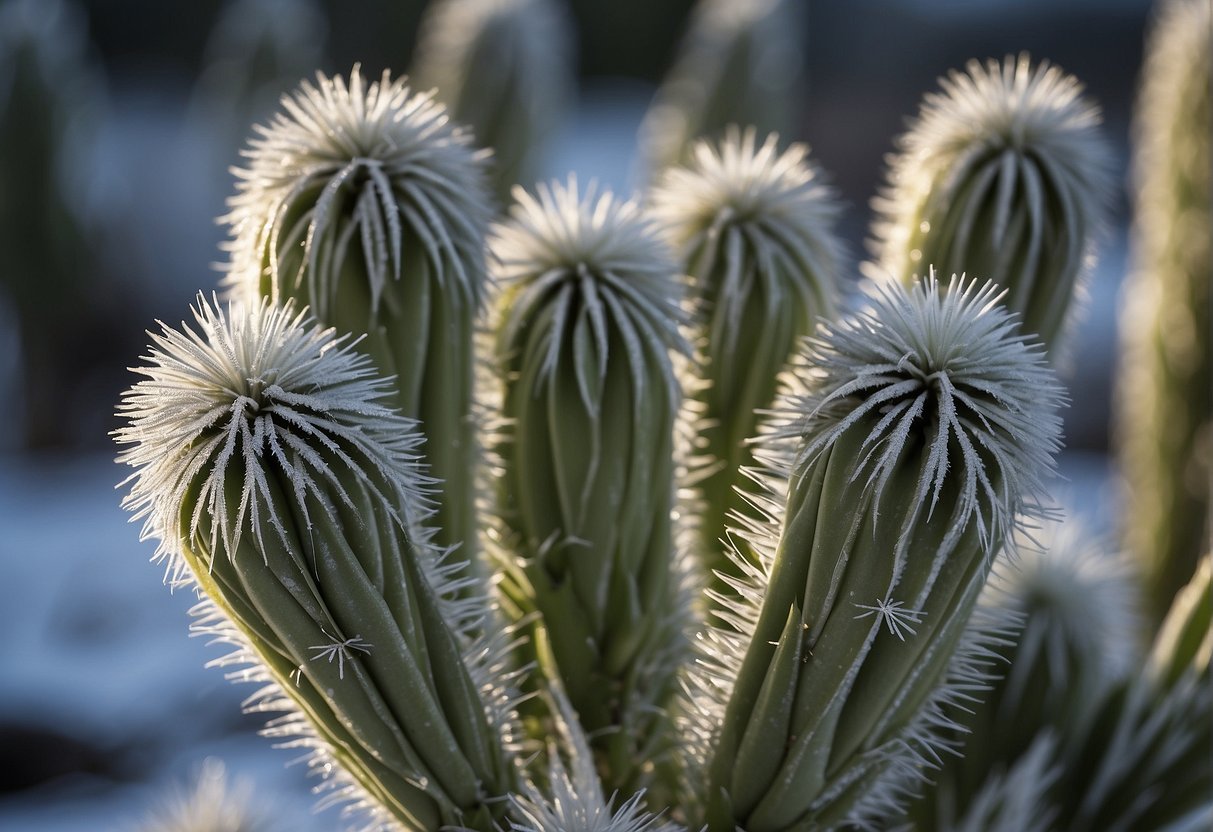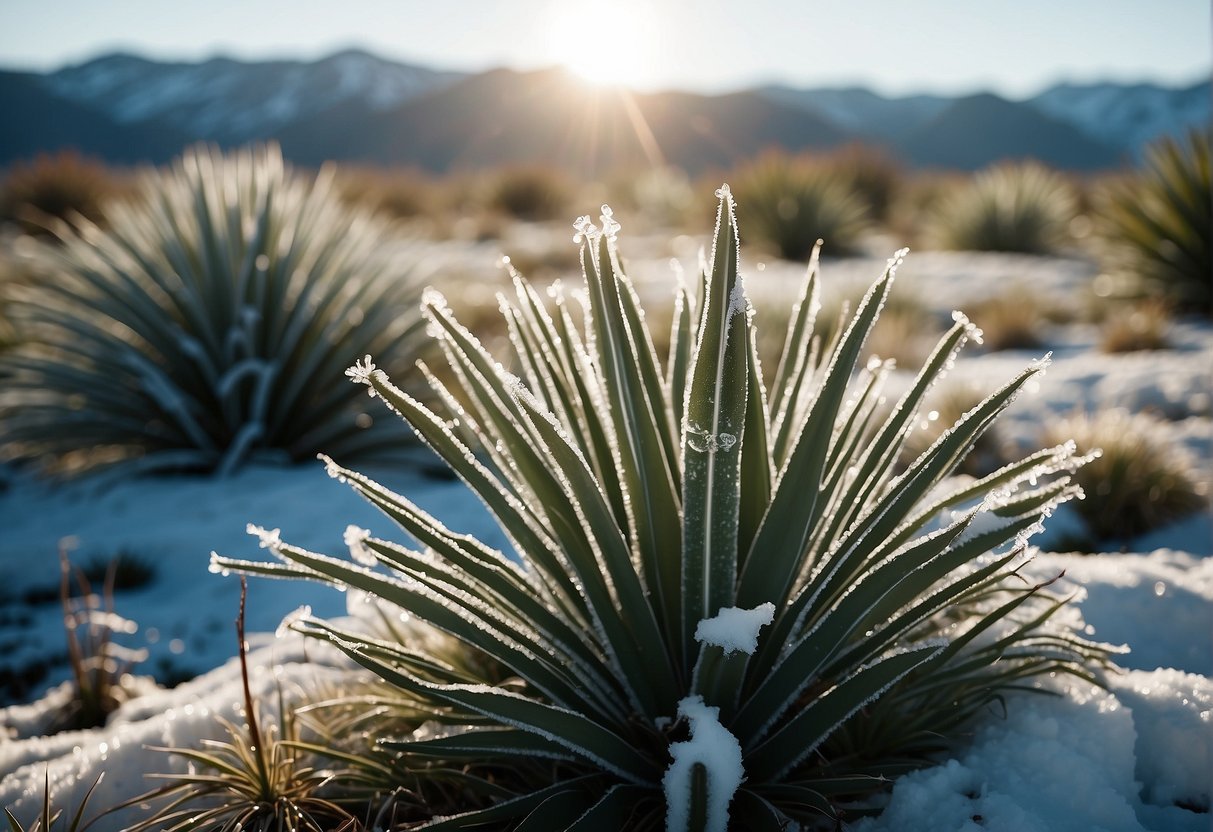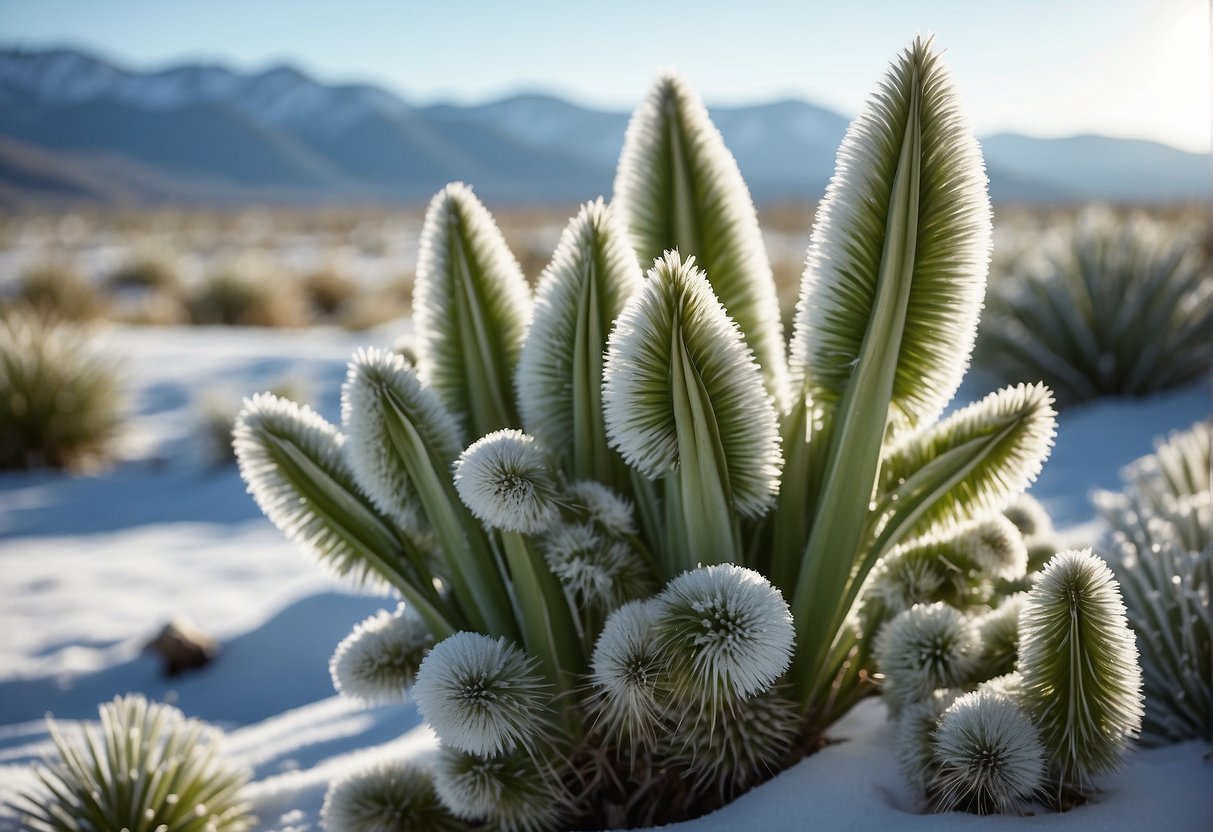If you reside in a region where winters are chilly, you may question whether your yucca plants can withstand the frosty weather. Yuccas are resilient plants capable of enduring various temperature levels, yet certain varieties are better suited for colder climates than others. By knowing the frost resistance of your yucca plants and applying appropriate care throughout the winter season, you can increase their chances of survival.

Yuccas are native to arid regions of North and Central America, where they are adapted to hot, dry conditions. However, many species have also adapted to cold temperatures and can survive in climates with freezing winters. The hardiness of a yucca plant depends on its species and where it is grown. Some species, such as Yucca filamentosa, are hardy to USDA zone 4, which means they can tolerate temperatures as low as -30°F (-34°C). Other species, such as Yucca rostrata, are only hardy to zone 7, which means they can only tolerate temperatures as low as 0°F (-18°C).
To ensure the survival of your yucca plants during the winter months, it is important to provide them with proper protection. This can include mulching around the base of the plant to insulate the roots, covering the plant with a frost blanket or burlap, or moving potted yuccas indoors. With the right care, your yucca plants can survive even the coldest of winters.
Key Takeaways
- Yucca plants can survive in a range of temperatures, but their hardiness depends on the species and where they are grown.
- Proper protection during the winter months, such as mulching or covering with a frost blanket, can help ensure the survival of your yucca plants.
- Understanding the hardiness of your yucca plants and taking proper care can help them thrive in cold climates.
Understanding Yucca Plant Hardiness

Yucca plants are known for their hardiness and ability to thrive in various environmental conditions. However, when it comes to cold temperatures, not all yucca species are created equal. Understanding the cold tolerance of your yucca plant is essential to keep it healthy and thriving.
Yucca Species and Cold Tolerance
Different yucca species have varying levels of cold tolerance. Some yuccas, such as Yucca filamentosa and Yucca baccata, are hardy and can withstand temperatures as low as -20°F. On the other hand, Yucca glauca and Yucca harrimaniae are less hardy and can only tolerate temperatures down to 0°F.
Yucca elephantipes, Yucca gloriosa, Yucca rostrata, and Yucca brevifolia are also hardy yuccas that can tolerate cold temperatures. However, it’s important to note that even hardy yuccas can experience frost damage when temperatures fluctuate rapidly.
Signs of Cold Damage in Yuccas
When yuccas are exposed to cold temperatures, they may show signs of damage such as wilting, discoloration, and browning of leaves. In severe cases, the entire plant may die. To prevent cold damage, it’s important to keep an eye on the temperature and protect your yucca plant when necessary.
One way to protect your yucca plant from cold temperatures is to cover it with a frost cloth or blanket. This will help to insulate the plant and keep it warm during cold snaps. Another way to protect your yucca plant is to plant it in a sheltered location, such as near a south-facing wall or under the cover of a tree.
In conclusion, understanding the cold tolerance of your yucca plant is essential to keep it healthy and thriving. By knowing which yucca species are hardy and how to protect your plant from cold damage, you can ensure that your yucca will continue to thrive for years to come.
Caring for Yuccas in Cold Climates

Yuccas are hardy plants that can withstand a wide range of temperatures. However, if you live in a cold climate, you may need to take some extra steps to ensure that your yucca plants survive the winter. In this section, we will discuss some soil and site requirements for yuccas, as well as some winterizing techniques that you can use to protect your plants.
Soil and Site Requirements for Yuccas
Yuccas prefer well-draining soil and full sun. They are drought-tolerant plants that do well in arid regions. If you live in a cold climate, it is important to choose a site for your yucca plants that is sheltered from the wind. This will help to protect the plants from frost damage.
Winterizing Techniques for Yucca Plants
If you live in a cold climate, you may need to take some extra steps to protect your yucca plants during the winter. Here are some winterizing techniques that you can use:
- Mulching: Mulching can help to protect the roots of your yucca plants from freezing. Use a layer of organic material, such as leaves or straw, to cover the soil around the base of the plant.
- Burlap: Wrapping your yucca plants in burlap can help to protect them from wind and frost damage. Use synthetic material if burlap is not available.
- Crown Protection: The crown of your yucca plant is the area where the leaves meet the stem. This area is particularly vulnerable to frost damage. You can protect the crown by covering it with a layer of mulch or burlap.
- Watering: Water your yucca plants sparingly during the winter months. Be sure to water them during the warmest part of the day to prevent the water from freezing in the soil.
- Fertilizing: Do not fertilize your yucca plants during the winter months. Wait until the spring to fertilize them.
By following these winterizing techniques, you can help to ensure that your yucca plants survive the winter in cold climates. Remember to remove any protective coverings in the spring to allow your plants to grow and thrive.
Frequently Asked Questions
What is the minimum temperature that yucca plants can withstand?
Yucca plants can tolerate temperatures as low as 15°F (-9°C), but prolonged exposure to such low temperatures can damage or kill the plant. It is best to avoid exposing yucca plants to temperatures below 20°F (-6°C) for extended periods.
At what temperature should yucca plants be brought indoors?
Yucca plants should be brought indoors when the temperature drops below 20°F (-6°C) or when frost is expected. It is important to gradually acclimate the plant to indoor conditions by placing it in a cooler room before moving it to a warmer location.
How do yucca plants fare in frost and freezing conditions?
Yucca plants are generally hardy and can withstand light frost, but prolonged exposure to freezing temperatures can damage or kill the plant. It is best to protect the plant by covering it with a frost cloth or moving it indoors during freezing conditions.
What care do outdoor yucca plants require during winter months?
During winter months, outdoor yucca plants require less water and fertilizer than during the growing season. It is important to keep the soil slightly moist but not waterlogged. Pruning dead or damaged leaves can also help the plant conserve energy.
Are there specific yucca species that are more cold-resistant?
Some yucca species, such as Yucca filamentosa and Yucca gloriosa, are more cold-resistant than others. It is important to research the specific species of yucca you are growing to determine its cold hardiness.
How does cold hardiness vary among different yucca plant zones?
Yucca plant zones are determined by the USDA Plant Hardiness Zone Map, which divides the United States into regions based on average minimum winter temperatures. Yucca plants can grow in zones 4-11, with some species being more cold-hardy than others. It is important to choose a yucca species that is suitable for your specific zone.














